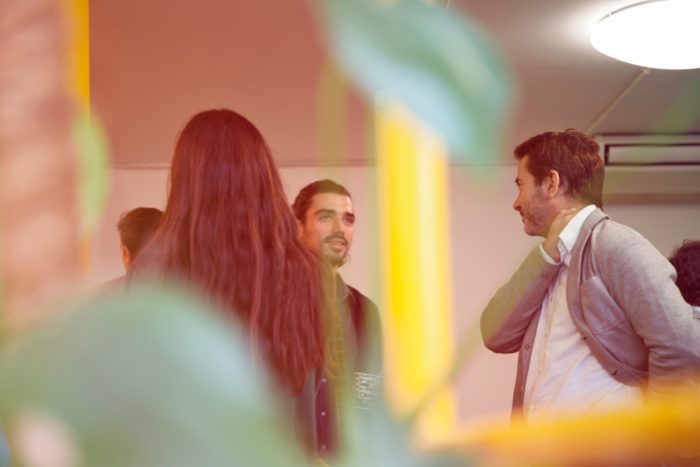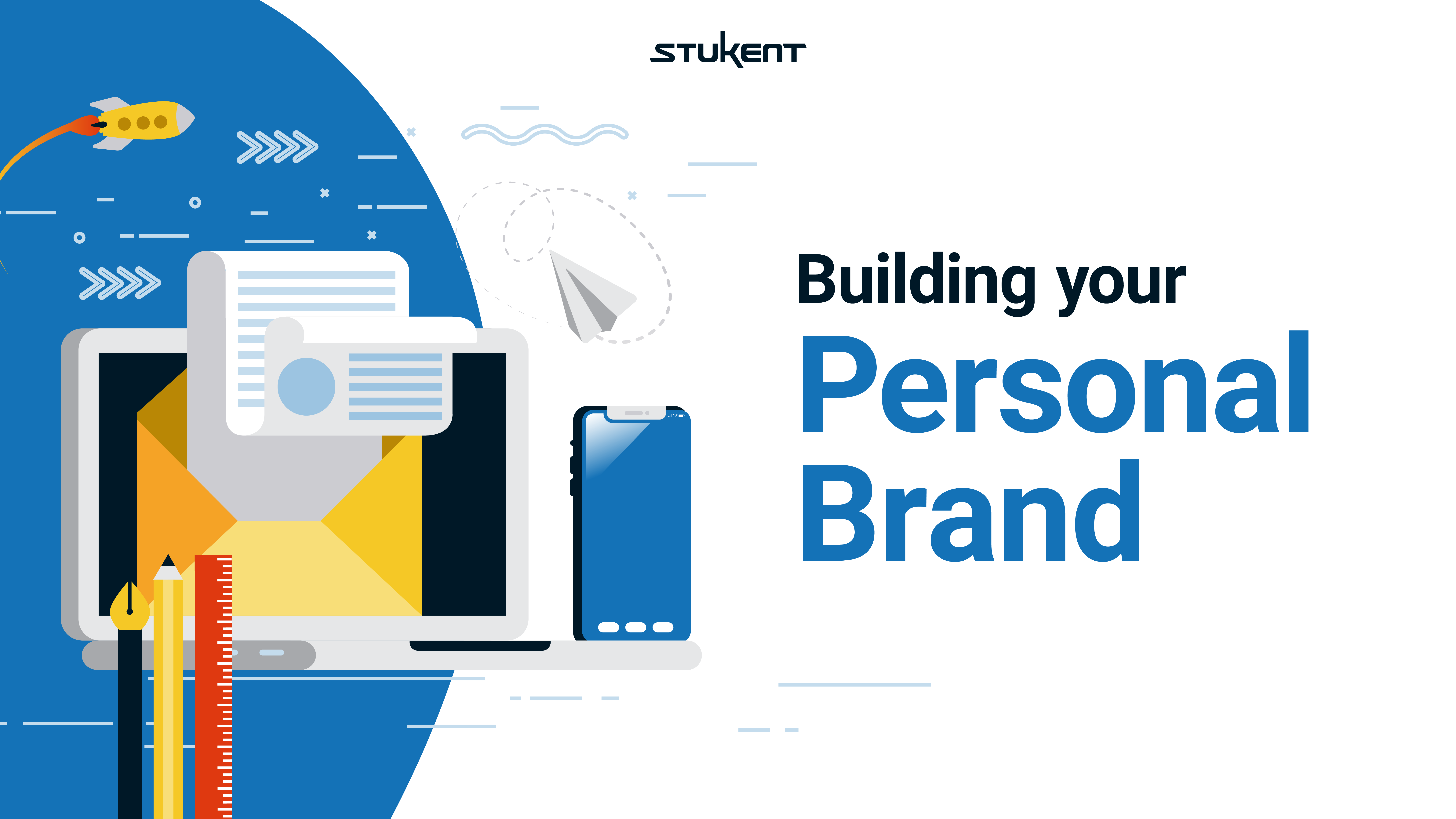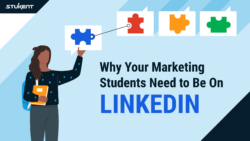Many people think a personal brand is a website or social media presence, but it’s more than that. A personal brand is a set of integrated features or characteristics about you, including your expertise, your personality, the consistency of the content you produce, and your actions. Your brand can be critical to your path forward.
Why Your Personal Brand Matters
Your personal brand is a key differentiator for educators. Personal branding is another way to separate yourself from the crowd. It’s essential to look at our brands as one of our most priceless possessions, as they contribute to how people perceive us and how much they value our expertise. Branding can even open the door to new opportunities, and there are more expectations for educators to build industry connections than ever.
Understand the YOU Brand

Being a professor is just one of the things I do. My brand is more than just my academic title, and it’s vital that you and I showcase our brands to others. So, I want you to think about what makes you, “you.” What is your personal vision statement? Simply think about identifying your overall purpose as an educator. What are some of the elements you’re passionate about? For me, my personal mission statement is to impact my field. My goal is to align industry and academia. I want to bridge the gap between these spheres, help the future generation, and help educators … that’s my personal mission statement.
Expand Your Network
Your digital social presence is just one part of your brand. You have to think about your connections to your colleagues, friends, family, community, and students. Then, you have to look at your expertise. As educators, we are often only recognized for our research and academic work, but we can broaden those horizons. I want you to think about your network: What are your extensions? What is your mission statement? What are your brand pillars? Consider these things as you map out your branding network. Everything should lead back to your brand.
Extend Your Content Creation for the New Norm
When you’re building your brand, highlight the major components of your digital presence. Go beyond things like social media channels, posting on a blog, and having content on your website. We all have opportunities to present at academic conferences and industry-level events, so try something new. Set up a newsletter, or maybe build a community with video tutorials. These are examples of elements that can extend your brand.

Own Your Own Story
This is an essential point: You have to be your own best advocate and take advantage of opportunities to tell your story. You can showcase your expertise, for example, by posting videos on sites like YouTube and Instagram. You could do video recaps from the conferences you attend, for instance, to help humanize your brand and give you a way to tell your story.
Focus On Providing Instead of Taking
It’s important to build your online presence, but you should also maintain your offline presence. Take time to help others with what they need. We want to help our students get jobs and be marketable, we want to make our fields and schools more esteemed, and we all want to help each other. That’s one of the things I love about Stukent. The company provides opportunities for people to come together. And there are still professionals, both inside and outside of academia, who don’t realize there are companies like Stukent doing innovative things for educators and students.

Launch an Experience
I encourage you to think of something you could do that provides value, insights, access, and mentorship to others, whether it’s a webinar or even a Zoom call.
Last year, we started the Cannes Lions Educator Summit. It’s about reaching out to people and saying, “You know, this is possible!” A few years ago, I saw a blog post and thought, “Oh my, Cannes, I think this needs to happen.” Little did I know that Cannes would reach out to me to do it. So, it’s about building a brand that makes way for the ask.
Diversify Your Brand
Over the last couple of years, I’ve extended myself more within the industry. I still do academic conferences, and I’m still an associate professor. I still publish, and I still do all the traditional things an educator does. But I’ve been making contacts with Adobe, HubSpot, Cannes Lions, and Facebook to explore other options. Stukent has built a great community for us, and I’m very grateful for that, but educators need to advocate for themselves in front of different audiences. I encourage you to see if you can extend yourself in other areas and talk about your brand. Every touchpoint you have is important.

Audit Potential Partnerships
I sometimes get a question that goes like this: “Okay, Karen, you’ve worked with these brands and educators, but how can I build my own partnerships?”
You need to understand why you’re targeting the brands you want to work with. My partner brands are aligned with my values and share my passion for bridging the gap between academia and industry.
Consider the following questions when you’re thinking about approaching a brand:
- Are you a fan of the brand?
- Do you use their products?
- Do you talk about them in your research or teaching?
People can’t read your mind, so you have to take the initiative. If there’s a brand you want to work with, maybe consider getting them not only as a class client, but as a partner to generate ideas with. That sort of alignment is not always a financial gain, but the relationship may be rewarding nonetheless.
Create a Community
Consider your core values and make a list of the brands you trust. Next, examine how your values match the brands’ values before you reach out to them. I’ve reached out to my favorite brands to say, “Okay, here’s who I am. Here are my interests and some of the things I would love to work on.” Not every brand will answer, but as you get experience formulating those relationships and opportunities, more will come your way. I’m a big believer in over-delivery and in articulating what you’re able to do, but then extending beyond that promise.
Additional Reading and Resources
- 10 New Marketable Skills Recent Grads Needed for the Covid-19 Era
- 6 tips for building a compelling digital brand
- Personal branding through online courses (Forbes)
- 10 rules for personal branding (Forbes)
- Branding insights + Personal branding segment on Facebook Blueprint
- HubSpot Personal Branding Resource Center
Adapted from Professor Karen Freberg’s presentation at Stukent’s ProfCon 2020

Speaker Bio: Karen Freberg, Ph.D. is an associate professor in strategic communications at the University of Louisville, where she teaches, researches, and consults in social media strategy, public relations, and crisis communication. Karen has written several books, including “The Roadmap in Teaching Social Media,” “Digital Media Writing for Strategic Communication,” and “Social media for strategic communications: Creative strategies and research based applications.” Karen has consulted, coordinated, and advised various companies in the areas of social media pedagogy and certification programs, such as Cannes Lions, Adobe, Facebook Blueprint, HubSpot, and more.






